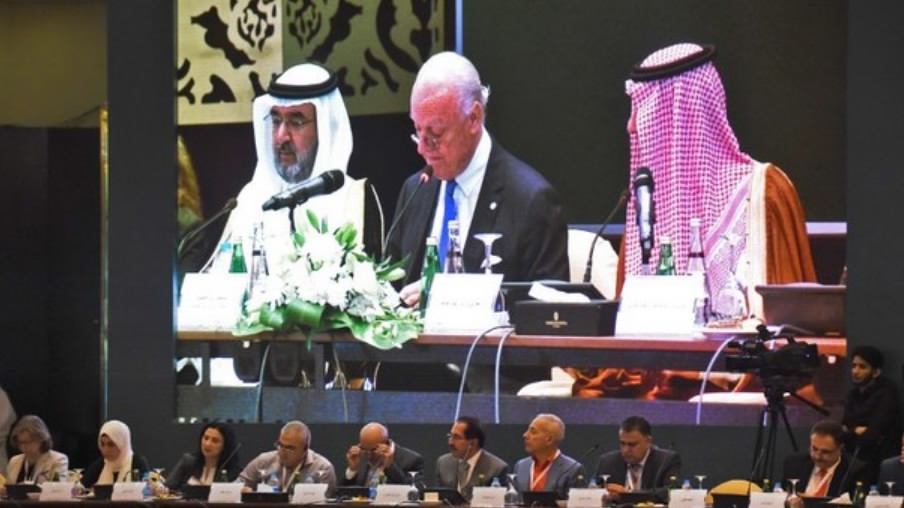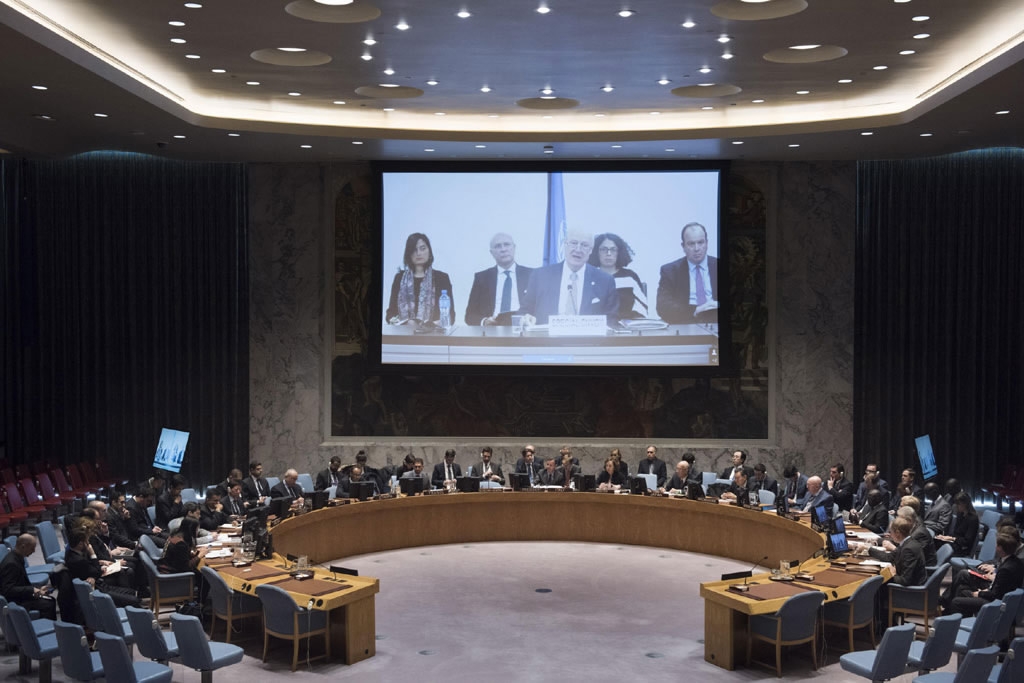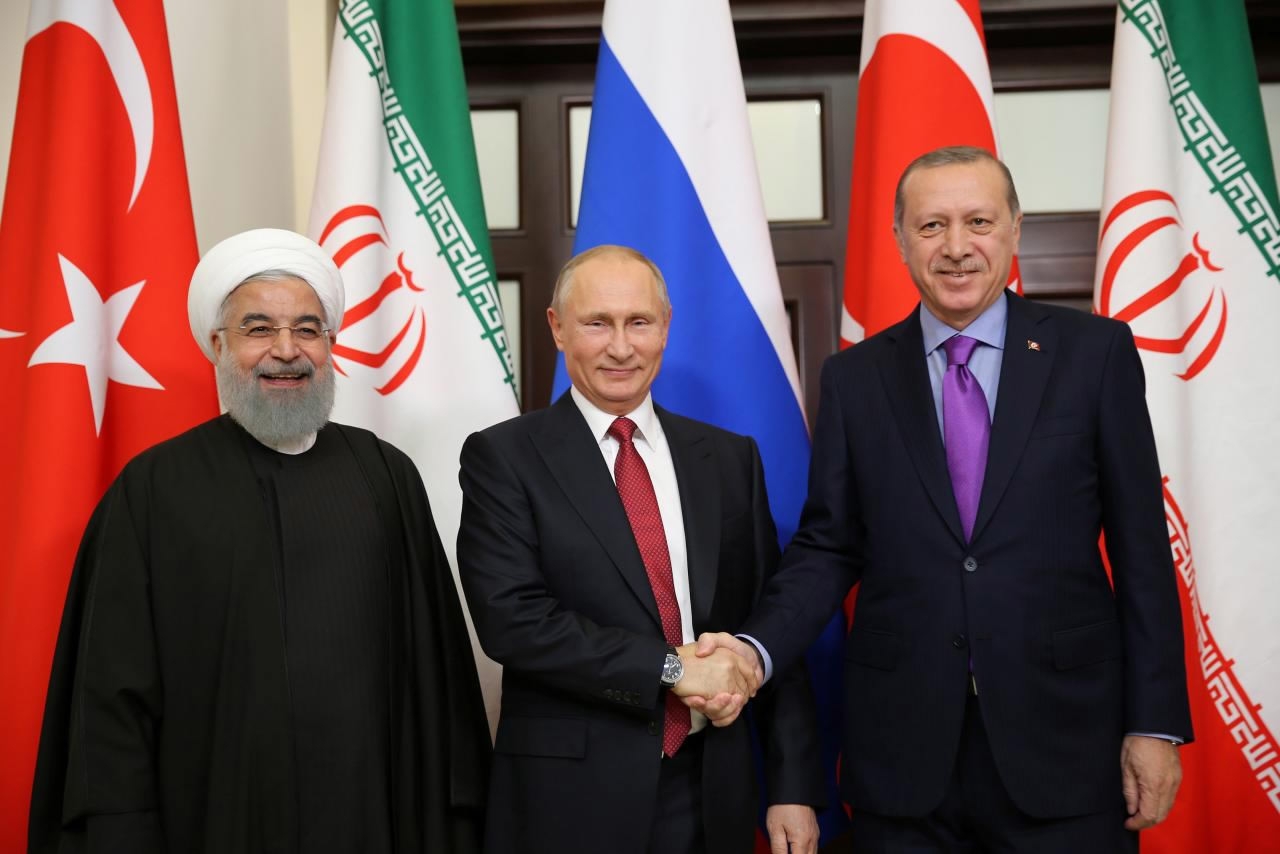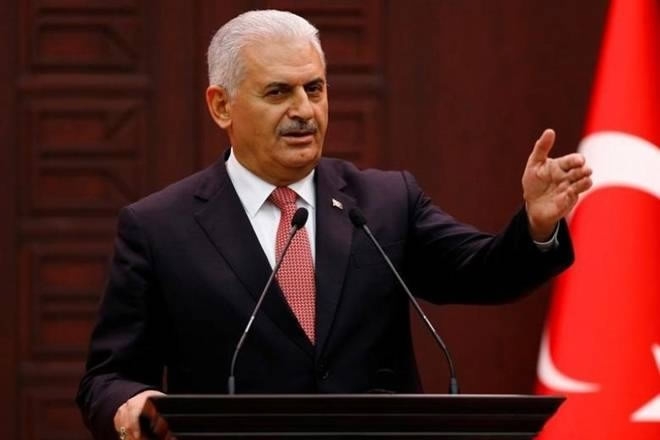
Politics
09:15, 28-Nov-2017
UN restarts Syria peace talks but gov't officials absent
CGTN

Ahead of a fresh round of Syrian peace talks on Tuesday in Geneva, United Nations mediator Staffan de Mistura said that the crisis now has the potential to move towards "a genuine political process."
"International players are clearly looking for some common ground based on the implementation of Security Council resolution 2254 (2015), and are urging Syrians to begin to find some common ground too," de Mistura said at a Security Council meeting in New York on Monday.

Presidents Tayyip Erdogan of Turkey, Vladimir Putin of Russia and Hassan Rouhani of Iran meet in Sochi, Russia, November 22, 2017. /Reuters Photo
Presidents Tayyip Erdogan of Turkey, Vladimir Putin of Russia and Hassan Rouhani of Iran meet in Sochi, Russia, November 22, 2017. /Reuters Photo
The Geneva talks will focus on governance, a schedule and process to draft a new constitution and elections as the basis for a Syrian-led, Syrian-owned process to end the conflict.
The UN Security Council also urged all Syrian parties to participate actively in the political process without preconditions and to support efforts to ensure its success.
The Syrian government had not yet confirmed that it would attend talks with the opposition.
Meanwhile, Turkey's Prime Minister Binali Yildirim said the "Astana process" to revive the Syrian peace process, led by Russia, Turkey and Iran, is working alongside the UN's long-running Geneva discussions rather than competing with them.

Presidents Tayyip Erdogan of Turkey, Vladimir Putin of Russia and Hassan Rouhani of Iran meet in Sochi, Russia, November 22, 2017. /Reuters Photo
Presidents Tayyip Erdogan of Turkey, Vladimir Putin of Russia and Hassan Rouhani of Iran meet in Sochi, Russia, November 22, 2017. /Reuters Photo
"Astana peace talks, trilateral meetings, (are) not an alternative to Geneva, what we try to do is prepare infrastructure for solution(s)... in Geneva," said Russian President Vladimir Putin.
"We have achieved certain progress in terms of de-escalation and reducing the tensions in the country and moving toward a ceasefire," said Turkish prime minister Binali Yildirim.
But Yildrim also reiterated his country's determination to see Bashar al-Assad leave power.
"Look how things evolved in Syria, who caused Syria to be in the situation that it is today. It all happened because of the regime, because of Assad," he said.
He added in the long-term, "Assad cannot possibly survive in Syria, we have to accept this."

File photo of Turkey's Prime Minister Binali Yildirim. /Reuters Photo
File photo of Turkey's Prime Minister Binali Yildirim. /Reuters Photo
Dramatically, the Damascus government's last minute announcement that it may not come to Geneva delivered a blow to the already faltering negotiations.
Government negotiators did not travel to Geneva on November 27, all but assuring they will be absent for the opening of the talks.
The UN envoy de Mistura recalled Assad's pledge to Russian President Vladimir Putin last week that he was "ready for dialogue."
"Naturally we know and indeed expect that the government will be on its way shortly, particularly in light of President Assad's commitment to President Putin," he added.
Source(s): AFP
,Reuters
,Xinhua News Agency

SITEMAP
Copyright © 2018 CGTN. Beijing ICP prepared NO.16065310-3
Copyright © 2018 CGTN. Beijing ICP prepared NO.16065310-3